A Conversation with Matt Dybala, Herb Pharm’s Farm Manager
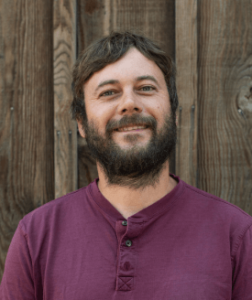
Matt Dybala is the Farm Manager at HerbPharm.
Regenerative Agriculture is getting a lot of press lately – and for good reason. We believe the herb industry is in a good position to encourage more farmers to shift to regenerative practices.
Register now for: Three Paths to Regenerative Farming, this Thursday, Dec. 3.
For other SHP links:
- Regenerative Agriculture – definitions and resources.
- An interview with Tom Newmark, co-founder of The Carbon Underground, on the Soil Carbon Initiative.
- Bethany Davis’s post about why MegaFood is behind regenerative agriculture.
Ann: It was great to hear you speak at ExpoWest about your experience as a pilot farm for the Regenerative Organic Standard. To start with, could you explain why is regenerative agriculture important, for Herb Pharm and in general?
Matt: We are looking at regenerative agriculture as a way to keep growing our organic roots. Initially, Herb Pharm’s interest in participating in a regenerative pilot farm certification stemmed from our leadership and the ethical values that motivate Herb Pharm. We grow our own herbs as much as possible and this gets us focused on developing highly ethical farming practices. And this is really about setting our own benchmarks for better transparency. Typically, organic certification is about clarifying to consumers that you’re not using synthetic fertilizers, herbicides or pesticides. However, it can neglect to describe how you treat your soil and farm workers. Building and preserving healthy topsoil, sequestering carbon, and paying living wages are only a few of the many concepts that get more formalized while navigating through this regenerative certification pilot.
But more than anything, this is how we can take a proactive stance against climate change. In our region, we are experiencing more consistent, longer periods of summer drought and milder winters. And that’s making it more difficult to farm. And so being involved in this pilot is also about responding to recent studies that address agriculture’s role in global warming.
If we keep ignoring climate change, not much else is going to matter. We have to be part of the solution.
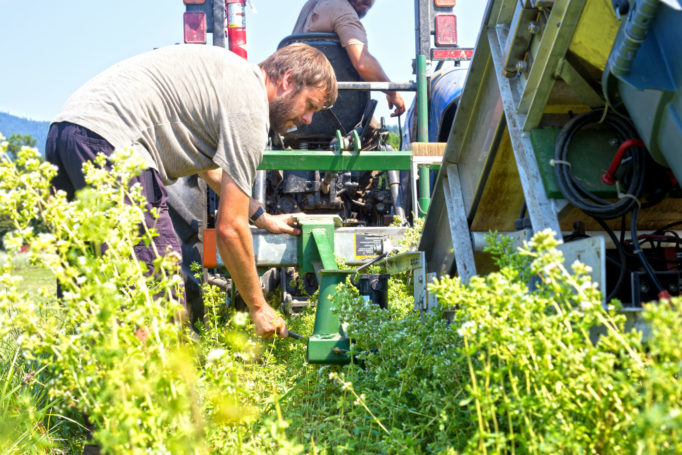
Matt Dybala working on the farm. Photo credit: Herb Pharm.
Ann: Can you talk about what is involved to be a pilot farm for regenerative organic certification (ROC)?
Matt: An understanding of regenerative farming concepts and getting familiar with new certification standards is the first step. It is organized into a tri-level benchmark system with bronze, silver and gold certification. Overall, the basic requirement is that your farm is already certified organic.
Soil Health Pillar
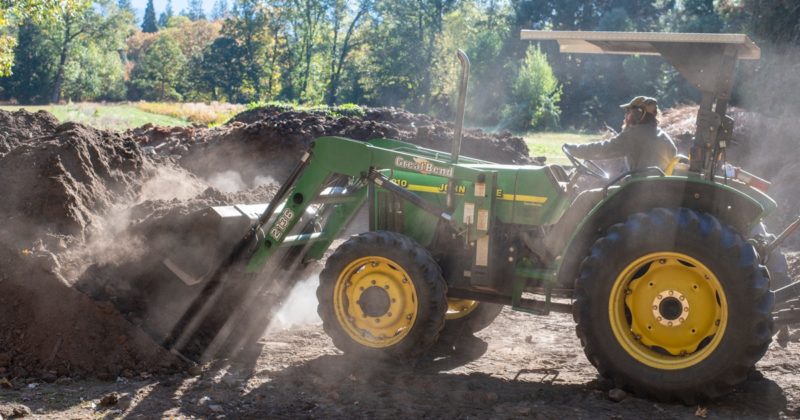
Herbs come full circle on the farm — the marc left over from processing becomes compost. Ty, an Herb Pharm employees, shovels compost that will be spread on fields to nourish future crops. Photo Courtesy of Herb Pharm.
The soil health standards focus on crop and field rotations, tillage practices, soil carbon levels, cover crop diversity, and generating on-farm fertility. It made me sit down and take a hard look at all of these processes and how we can improve upon our current systems. We have always had a healthy, diverse crop rotation by growing over sixty-five unique species of herbs on our farm. However, keeping soil undisturbed and designing more perennial cropping systems using herbs, shrubs and trees is a large part of regenerative farming. How can we apply no-till or reduced tillage to meetROC’s criteria? How can we increase organic matter and carbon sequestration on our own farm?
These are fun and challenging aspects of ROC’s pilot program. Partnering organizations, such as Rodale Institute and Cornell University, have also provided vital resources. For example, soil health is reviewed through a comprehensive in-field and lab health analysis. As opposed to the standard nutrient analysis often required for organic certification, regenerative soil building emphasizes increasing biological activity, tracking carbon levels and improving soil structure. It has encouraged our farm to incorporate new nutrient delivery routes through a more focused review of our composting and cover cropping capabilities. And by using a benchmark system, an initial soil health assessment becomes your farm’s foundation for building a long-term management plan.
Social Fairness Pillar
Up until now, I have paid very little attention to consumer labels on worker fairness or fair trade certification labels. However, the social fairness component of regenerative certification could easily represent the largest variability gap when compared to other farm-based certifications that do not guarantee economic stability for farmers.
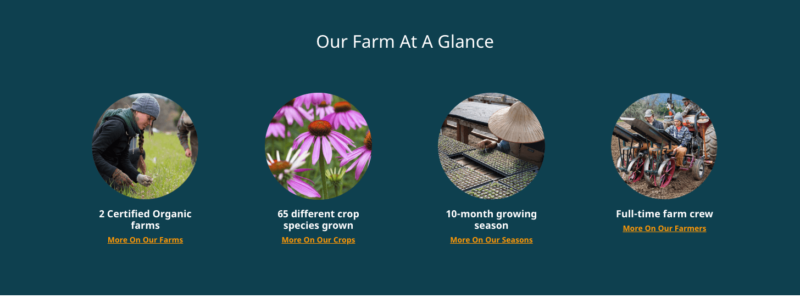
Ann: What does that look like on a farm like yours?
Matt: At Herb Pharm, we are a Certified B Corporation, which means we include how we impact all stakeholders when we make decisions about the business. We already get paid a living wage in Southern Oregon, which is a major benchmark of the social pillar, and we have a $15/hour minimum wage, which includes our farm. Another important aspect is to promote worker independence and empowerment among your staff. Top down management isn’t really going to work under this certification, which helps define my role at Herb Pharm. Employee rights and fair wages are an inherent part of ROC’s social standards, as are building leadership teams and allowing farm workers to organize and combat unfair labor practices. Proof of an existing social fairness certification is a basic requirement of this social pillar. Currently, there are seven third-party organizations recognized under regenerative organic certification, which standards more specifically address economic injustices, locally and globally.
Ann: So that all sounds really positive and like it is an incredible amount of work. Can you talk some about that?
Matt: ROC really captures “best practices” of organic farming. And those methods are not nearly as transparent in USDA’s current national organic program regulations, which basically cover record compliance. Unfortunately, a simplified audit of farm inputs can often overshadow poor farming and labor practices, far removed from what pioneers of the organic movement had originally intended. And much of that is probably market driven by growers struggling to meet a rising consumer demand for organic goods. In my opinion, this regenerative certification clearly defines higher benchmarks in soil and social fairness standards. There is also a third pillar, animal welfare, which I am less familiar with as a pilot participant, as we do not raise livestock on our farm.
Regardless of any certification, I know that I’m going to keep striving to make a positive impact on our farm’s resources and ecosystems. But in the bigger picture of a warming planet, industrial agriculture needs to adapt. And that’s the wider audience hopefully a regenerative discussion will impact. Right now, restoring healthy farm ecosystems and carbon levels are very driven by consumer choices.

Fields of Echinacea (Echinacea purpurea) at Herb Pharm. Photo by Steven Foster.
Ann: What advice do you have for companies wanting to get into regenerative agriculture?
Matt: Visit www.regenorganic.org and download ROC’s participant handbook and framework for regenerative organic certification manual. Review with your company’s leadership team and see if this program offers mutual benefits regarding your approach to farming.
Ann: When you think about the predictions on having sixty years left of top soil, what do you think the responsibility is of companies that are using resources from that soil?
Matt: Not only do we know, but also feel in our hearts, that this problem requires such a wide sweeping change in our nation’s corporate culture. Both farm producers and consumers have been exposed to the horrifying aspects of industrial agriculture. There have been so many videos, movies and books of depressing facts. And is anything changing? Or do we feel helpless and more depressed about that?
If not, how do we implement new ideas? How do we create greener industries for the next generation? If a clearly defined certification can promote these changes, I say yes to those supporting best practices. Let’s make a positive impact on climate change and help others strive for that too.
I have a lot of hope; because I am constantly inspired by people around me……farm interns, workers, rural community and family. Today, many people are seeking ways to steward a positive earth connection. As farmers, our sense of working with nature is an everyday experience. And regenerative organic certification is a great tool to shift everyone’s focus back towards the ecological impacts of farming.
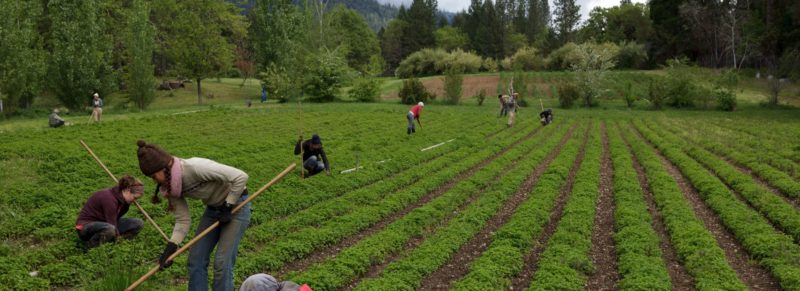
Herb Pharm Interns learn about organic farming, including natural pest management practices and crop rotation. Here, they use hula hoes to weed a field of Lemon Balm (Melissa officinalis). Photo courtesy of Herb Pharm.

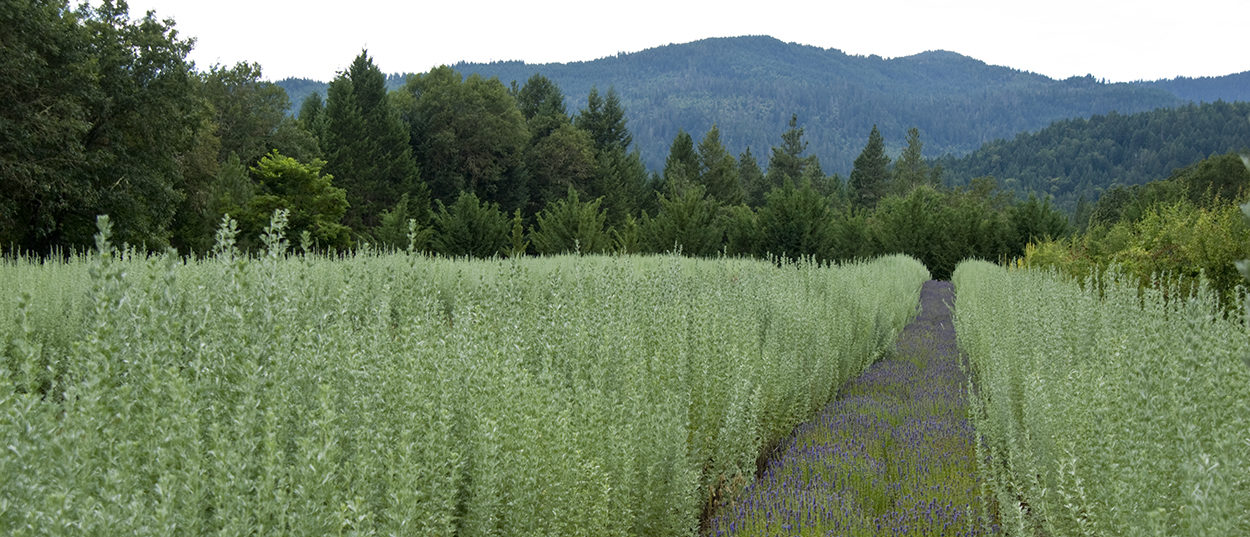
Comments